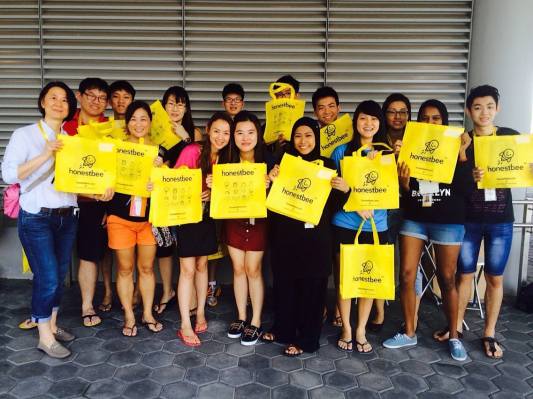Honestbee just raised $15 million for its on-demand grocery delivery service, but it has loftier aspirations. Head of marketing Shane Chiang says the Singapore-based company launched as a “social impact business” to give employment to people who can’t hold a regular job, such as stay-at-home parents, caregivers, and students. Honestbee’s part-time shoppers collect groceries from local stores for each customer’s shopping list and then hand the package to its logistics partners, who usually deliver orders about an hour after they are placed.
Its new funding, which counts as Honestbee’s Series A, was led by Formation 8, with participation from Pejman Mar Ventures, Gideon Yu, Owen T. Van Natta, and Steve Chen. The company launched in Singapore just two months ago and now has 100 staffers, is already tackling an ambitious expansion plan. It started operations in Hong Kong last week and plans to expand to six other countries, including Taiwan and Japan, over the next half-year.
The company’s market research found that in Singapore, people usually need four hours to complete their weekly grocery runs, while in Hong Kong it takes about two and a half hours. The chore is less time-consuming for car owners, but most people in Honestbee’s target markets rely on public transportation. Chiang says that in the future Honestbee plans to offer new services that will help users avoid other tedious chores (it already offers delivery from pet supply stores and other specialty retailers).
Honestbee’s shopper program isn’t just about altruism. Chiang says shoppers ensure that customers get the freshest meat and produce from store shelves. The company claims to pay its shoppers well. In Singapore, for example, shoppers can earn up to SGD $14 (about $10) an hour; Chiang says one employee currently makes about SGD $4,500 (about $3,200) gathering orders for Honestbee.
Honestbee doesn’t charge a markup on in-store prices, but it does have delivery fees unless customers make a minimum order (the amount varies in each city). Instead, Honestbee monetizes by splitting revenue with retail partners. The company won’t disclose their cut, but Chiang says stores are willing to pay it because using Honestbee saves them the hassle and expense of setting up e-commerce operations to compete with businesses like RedMart, one of its main rivals in Singapore.
Grocery delivery companies usually follow one of two models. Some operate their own warehouses, while others, like Honestbee (and Instacart in the U.S.) partner with brick-and-mortar shops. Redmart, which runs its own warehouse and logistics system, has grown rapidly and scored $55 million in venture backing so far.
Chiang says Honestbee’s advantage is that it appeals to customers who want certain products from their favorite stores that RedMart might not carry, as well as lower minimum orders for delivery fees. The drawback is that working with retail partners gives Honestbee less control over inventory, which means customers might be frustrated by out-of-stock items, but it will make its international expansion plans easier to pull off.
